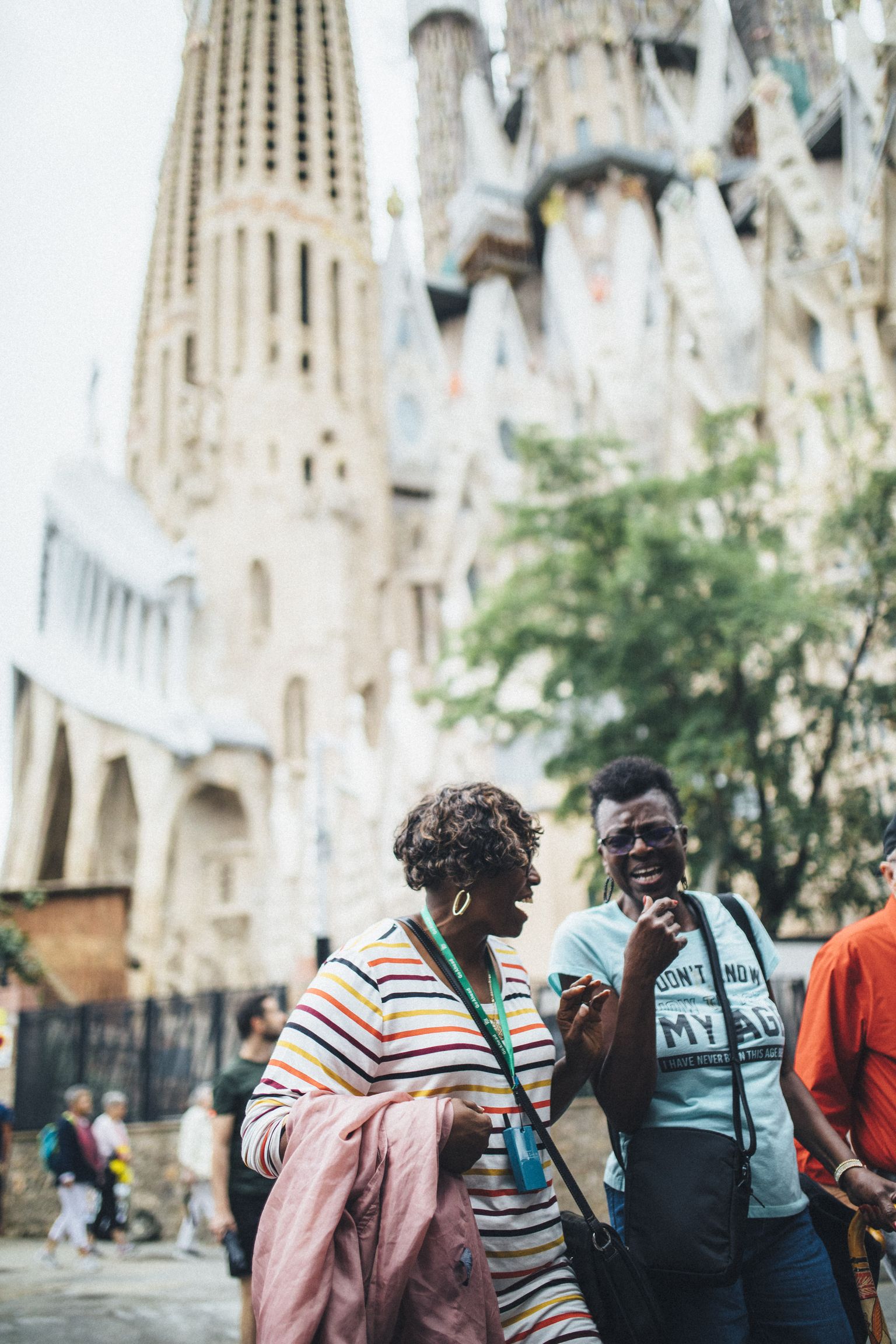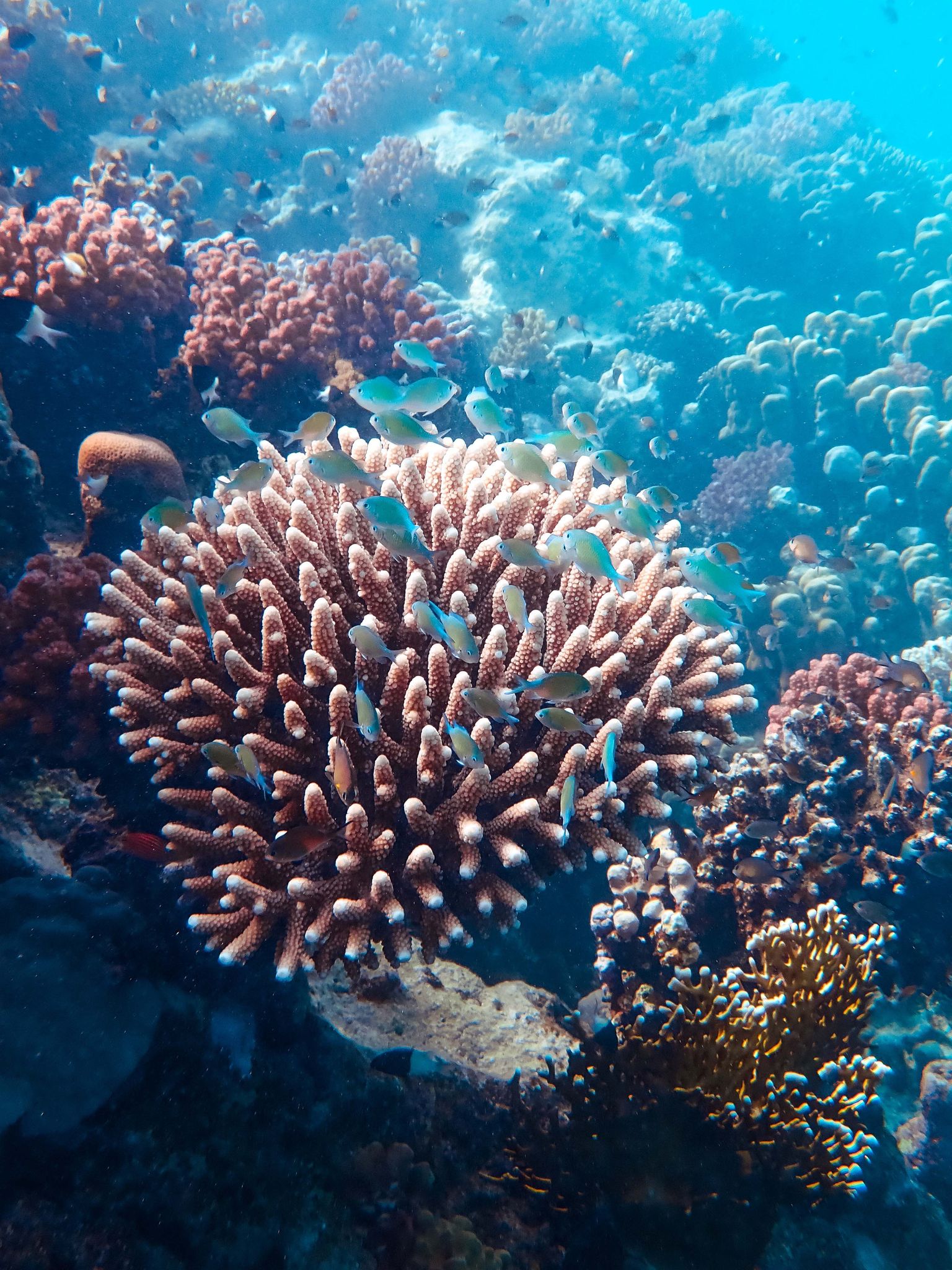Great Barrier Reef tours
Visit this awe-inspiring formation known as the largest individual system made by living organisms in the world on our trips to the Great Barrier Reef.
Showing 1–4 of 4 tours
Save up to $500
Imagine the bliss of taking your dream trip this year. Picturing it? Now, claim it! Indulge your 2025 travel cravings by April 17 to save up to $500.†

Traveling with a group?
Bring 6+ friends with you, and your spot is free (including airfare)!
Learn more
Combine your Club Go credits
Earn rewards for every trip with Club Go’s automatic, free membership.
Join our loyalty program)
Already booked? Add excursions!
Add handpicked experiences and stay longer on a tour extension.
Customize your tourExperiential travel made easy
You dream it. We’ll take care of every last detail.
Pick your perfect trip
We offer 200+ immersive, guided tours around the world. Wherever you choose to go, you’ll enjoy lots of advantages that make traveling with us different.
Put just $99 down
That’s all it takes to secure a spot on one
of our group tours when you sign up for
AutoPay. Plus, you can pay in interest-free,
monthly installments.
Prep your packing list
While you’re deciding what to take, we’ll be busy arranging your hotels, meals, tickets, and more tour essentials. That’s what going guided is all about.
Go far (and get rewarded)
Take off on your big adventure— but why stop there? Every trip you book with us earns rewards that you can use to keep expanding your horizons.
Not sure which Great Barrier Reef tour is right for you? We're here to help.

Chat online
Chat instantly with us during our normal hours, or leave a message and we’ll get back to you ASAP.
Schedule a call
Let us know your preferred time to chat and a travel expert will reach out.
Travel tips for Great Barrier Reef trips
The Australian dollar.
To stock up on local currency, order some Australian dollars from your bank before you go or use your debit card at an ATM once you arrive. For tips on using the Australian dollar while on Great Barrier Reef tours, check out our blog on currency exchange.
The Great Barrier Reef is home to a diverse range of languages. The most common languages spoken in the region are English, Kriol, and the Aboriginal and Torres Strait Islander languages. English is the official language of Australia and is spoken by most people living in the Great Barrier Reef region.
We recommend you spend at least three to four days on Great Barrier Reef trip packages. You’ll need that many days to see the variety of marine life and go snorkeling or diving on the reef.
Located off the coast of Queensland, Australia, the Great Barrier Reef is one of the world’s most remarkable natural wonders and a UNESCO World Heritage site. It offers diverse activities for visitors to explore its breathtaking marine life and stunning coral formations. Some of the most popular activities to do on trips to Great Barrier Reef include:
- Snorkeling. Snorkeling is a fantastic way to observe the vibrant underwater world of the reef up close. With crystal-clear waters and abundant marine life, you can witness colorful coral, tropical fish, and other fascinating sea creatures.
- Island hopping. A great way to experience the diversity of the Great Barrier Reef’s amazing natural wonder is by island hopping. There are hundreds of islands to choose from, each with unique character and charm. Some of the most popular islands for island hopping include the Whitsunday Islands for their white-sand beaches, clear, blue waters, and lush rainforests, and remote Lizard Island, whose pristine waters are teeming with fish and coral.
- Wildlife spotting. Apart from marine life, the Great Barrier Reef and its surrounding islands are home to a variety of wildlife. Over 240 species of birds can be found, including seabirds, shorebirds, and pelicans. The Great Barrier Reef is also home to a variety of reptiles, including crocodiles and snakes. During migration seasons, you may encounter sea turtles, dolphins, rays, and even whales.
Remember to follow our Responsible Travel practices and respect the fragile ecosystem during Great Barrier Reef tours to ensure its preservation for future generations.
A vast and diverse ecosystem, the Great Barrier Reef offers many attractions and points of interest for visitors to explore. Here are some of the top attractions to explore on trips to Great Barrier Reef:
Hardy Reef. A popular destination for snorkeling, diving, and helicopter and seaplane tours, Hardy Reef is home to the famous Heart Reef, a naturally heart-shaped coral formation visible from the air. The best time to go is during the dry season, from May to October. The weather is generally good during this time, and the visibility in the water is excellent.
Whitsunday Islands. This archipelago of 74 islands is renowned for its white sandy beaches, crystal-clear waters, and stunning marine life. Some of its popular islands include Hamilton Island, Daydream Island, and Whitehaven Beach.
Ribbon Reefs. A series of long, narrow coral reefs known for their vibrant marine life and excellent diving, the Ribbon Reefs are part of the more remote northern section of the Great Barrier Reef.
The weather in Australia’s Great Barrier Reef region can vary depending on the time of year and your location within the reef. The region has a tropical climate characterized by distinct wet and dry seasons. The weather can also vary between reef areas due to its vast size. Coastal areas and islands generally have milder temperatures and sea breezes, while inland areas may experience higher temperatures. When planning tours of the Great Barrier Reef, it’s advisable to check the weather forecast for your specific destination and plan accordingly.
Dry Season (Winter):
April and May. These months mark the transition from wet to dry seasons. The weather is pleasant, with lower humidity and daytime temperatures ranging from 73°F to 84°F.
June to August. Winter is the peak tourist season in the Great Barrier Reef. The weather is mild and comfortable, with daytime temperatures around 70°F to 79°F and lower humidity.
September to November. Towards the end of the dry season, temperatures gradually increase, with daytime highs ranging from 77°F to 88°F. It can still be enjoyable for Great Barrier Reef trips as there are fewer crowds compared to peak season.
Wet Season (Summer):
It’s essential to note that weather patterns can be unpredictable, and cyclones can occur during the wet season. If you plan to visit during the wet season, be aware of the potential for heavy rainfall and monitor weather forecasts for any tropical storm warnings.
December to February. These months are characterized by higher humidity and occasional heavy rainfall. Daytime temperatures can reach 88°F to 91°F.
March. The wet season starts to subside in March, but humidity remains relatively high, with daytime temperatures ranging from 82°F to 90°F.
- Dry Season (April to November). This is the peak tourist season, and it’s generally considered the best time for Great Barrier Reef tour packages.The weather is pleasant, with lower humidity and less chance of rainfall. The dry season offers excellent underwater visibility, making it ideal for snorkeling, scuba diving, and other water activities. The marine life is active, and you’ll likely encounter a wide variety of fish, turtles, rays, and possibly sharks.
- Wet Season (December to March). The wet season brings warmer temperatures and higher humidity to the region. While there is a possibility of heavy rainfall and tropical storms (cyclones), they are relatively rare in the central and southern parts of the Great Barrier Reef. The wet season is less crowded, allowing for a more intimate and quieter experience on the reef. The reef’s surroundings and islands become lush and green during this time, creating a beautiful and vibrant landscape. Marine life is still abundant, and you may have the opportunity to witness unique events, such as coral spawning.
When preparing for tours of the Great Barrier Reef, it’s essential to pack appropriately to ensure a comfortable and enjoyable experience. Here’s a comprehensive packing list to consider:
- Lightweight and breathable clothing. Pack clothing suitable for warm weather, such as shorts, T-shirts, and sundresses. Loose-fitting clothes made from natural fabrics like cotton or linen are ideal for keeping cool and comfortable during your visit. To protect against the sun and insects, we also recommend packing some long-sleeve shirts and lightweight pants. You’ll also want a light sweater or jacket for cooler evenings or air-conditioned areas.
- Swimwear. If you plan on snorkeling and swimming (and you’ll want to!), you’ll need something comfortable and appropriate to wear in the water. A quick-drying bathing suit with UV protection is recommended. You’ll also want comfortable, sturdy sandals or flip-flops for beach activities and walking on sand. For protection while snorkeling or exploring tidal tools, consider reef-safe water shoes or reef-walkers.
- Sun protection. Bring sunscreen that meets three criteria: broad-spectrum, water-resistant, and, most importantly, reef-safe. You’ll also want to pack high-SPF lip balm, sunglasses with UV protection, and a wide-brimmed hat or cap to protect against the sun’s intense rays.
- Reusable water bottle. Staying hydrated is crucial, so bring a reusable water bottle to refill throughout your trip.
- Waterproof bag. A waterproof or dry bag is essential to protect your electronics, camera, and other valuables during water-based activities.
- Underwater camera. To capture the reef’s beauty, bring an underwater camera or a waterproof housing for your existing camera to take photos while snorkeling.
Once you’ve reserved one of our guided tours to Great Barrier Reef, we’ll send you detailed information about what to bring. Don’t forget to download the free Go Ahead Tours app before you take off, so you’ll have all the info you need about your trip right in your pocket.




